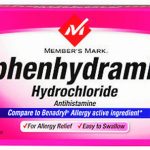Contents
Hemolytic Uremic Syndrome (HUS)
HUS is a condition characterized by the destruction of red blood cells, a low platelet count, and kidney failure.
A syndrome is a collection of symptoms, signs, and laboratory or imaging findings that group together and are associated with a specific disease or illness.
Facts
- HUS has two types:
- Typical HUS follows a diarrheal infection caused by E. coli OH157:H7.
- Atypical HUS is not associated with an infection of the digestive tract and has a less favorable outcome.
What is HUS?
HUS is a disease affecting the blood stream and the kidneys. It involves the destruction of red blood cells (hemolysis) and kidney failure (uremia). The abnormal clotting of blood within capillaries leads to the destruction of red blood cells. Kidney failure occurs when waste products build up in the bloodstream because they cannot be filtered and disposed of by the kidneys.
HUS is related to another disease called thrombotic thrombocytic purpura (TTP), which also involves abnormal clot formation within capillaries. Though often considered together, HUS is more well-known due to its association with a specific type of E. Coli infection related to food poisoning.
HUS can be classified as typical or atypical. Typical HUS is associated with gastrointestinal (GI) symptoms such as vomiting and diarrhea, while atypical HUS is not associated with GI symptoms.
What causes HUS?
The exact cause of HUS is uncertain, but researchers believe it involves an abnormal inflammatory reaction in the bloodstream that leads to the abnormal clotting of platelets. This reaction may be triggered by an unidentified chemical present in blood plasma.
Possible triggers for HUS include:
- Enterohemorrhagic E. Coli: A type of bacteria causing bloody diarrhea commonly found in undercooked meat and other foods. It accounts for approximately 90% of HUS cases in children.
- Pregnancy and the early postpartum period have been associated with HUS, as have the use of birth control pills.
- Pneumonia: In some cases, HUS may result from pneumonia caused by the Streptococcus pneumoniae bacteria.
- Medications: Certain medications, including chemotherapy and immunosuppression drugs, birth control pills, ticlopidine, and quinine, may be associated with HUS.
- AIDS may be associated with HUS.
The diarrheal form of HUS is typical and primarily affects infants and children under 3 years old. Other forms are classified as atypical and can include inherited forms involving a gene mutation affecting blood clotting.
QUESTION
What are the signs and symptoms of HUS?
In typical HUS, symptoms include abdominal cramping, vomiting, profuse bloody diarrhea, dehydration, weakness, lethargy, electrolyte imbalances, anemia, kidney failure, and low platelet counts.
How is HUS diagnosed?
Diagnosis typically involves a thorough medical history, physical examination, and abnormal laboratory test results. Tests may include:
- Hemolytic anemia: A decreased red blood cell count and evidence of damaged and destroyed red cells on a blood smear.
- Thrombocytopenia: A low platelet count.
- Uremia: Elevated levels of waste products indicating kidney failure.
- Abnormal urine findings: The presence of blood and protein in urine.
- Stool cultures: Attempts to culture the bacteria responsible for HUS, particularly E. coli O157:H7.
In atypical HUS, the medical history is crucial for identifying potential underlying causes.
One distinguishing feature between HUS and TTP is a normal neurologic examination in HUS patients.
What is the treatment for HUS?
- Supportive care, including intravenous fluids for rehydration and electrolyte replacement, is often sufficient for typical HUS in children.
- Blood transfusions are reserved for severe cases of anemia.
- Kidney failure may be managed expectantly without requiring dialysis.
- In adults with atypical HUS, more aggressive therapy may be necessary, such as plasmapheresis or plasma exchange.
- Occasionally, dialysis may be required until kidney function recovers.
- Eculizumab (Soliris) is an approved treatment for atypical HUS that helps decrease abnormal clotting in the capillary blood vessels.
What is the prognosis of HUS?
- Most cases of typical HUS in children resolve completely.
- Adults generally have a worse prognosis, with a higher likelihood of death in the acute phase and long-term kidney impairment.
- HUS not related to a diarrheal illness has a poorer prognosis compared to cases associated with gastrointestinal infection.
- In cases of genetically caused HUS, relapses and kidney failure requiring dialysis are common.
How can HUS be prevented?
Thorough washing and cooking of food products can help prevent most cases of typical HUS associated with diarrhea. Proper food handling techniques are crucial in preventing the majority of HUS cases caused by poor food handling practices.
Unfortunately, there is no known method for preventing atypical HUS.
By clicking Submit, I agree to the MedicineNet’s Terms & Conditions & Privacy Policy and understand that I may opt out of MedicineNet’s subscriptions at any time.
Medically reviewed by Michael Wolff, MD; American Board of Urology
"Investigation Update: Outbreak of Shiga toxin-producing." CDC.gov. E. coli O104 (STEC O104:H4) Infections Associated with Travel to Germany.
"Eculizumab (Soliris)." FDA.gov.
"Eculizumab (Soliris)." FDA.gov.


